Publications
Articles, publications, books, tools and multimedia features from the U.S. Institute of Peace provide the latest news, analysis, research findings, practitioner guides and reports, all related to the conflict zones and issues that are at the center of the Institute’s work to prevent and reduce violent conflict.
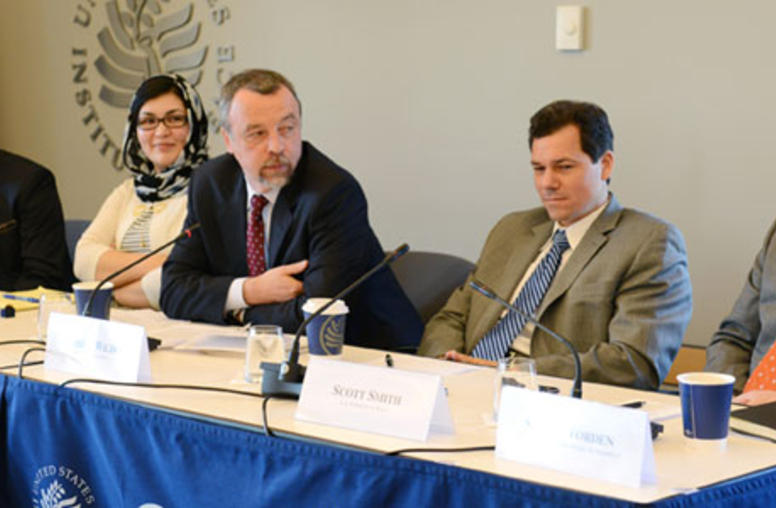
Credible Afghan Presidential Vote Hinges on Process, Politics
A U.S. official outlined the tests the Afghan government faces in cementing the first democratic change of top leadership in the country’s history, as one of Afghanistan’s most prominent civic activists described a “vibrant and active political environment” that just might help pull it off.
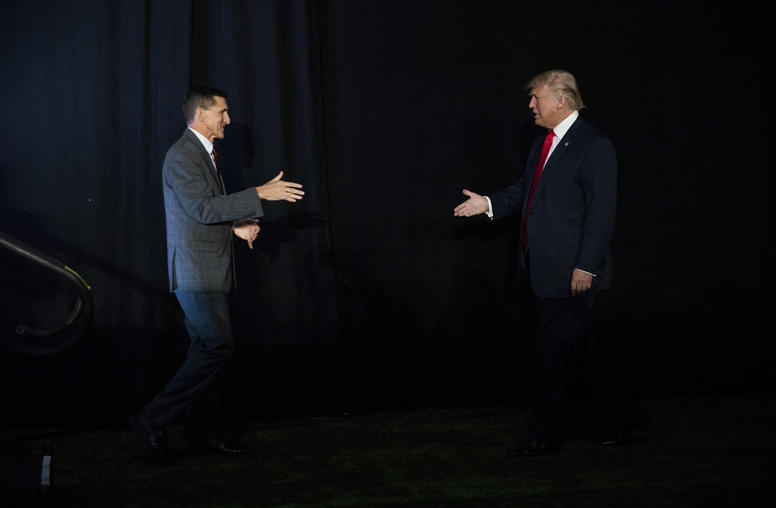
Foreign Policy Priorities for the Trump Administration
As Donald J. Trump prepares for his inauguration as president on Jan. 20, he and his incoming foreign policy team face the full array of global challenges confronting the United States. They’ll have to determine what should demand their immediate attention and where strategic investments might pay big dividends. In this series of brief video interviews, four U.S. Institute of Peace experts offer their recommendations. They spoke ahead of USIP’s Passing the Baton conference, which will convene Cabinet-level and other senior foreign policy and national security figures from the outgoing and incoming administrations for meetings on January 9 and 10.
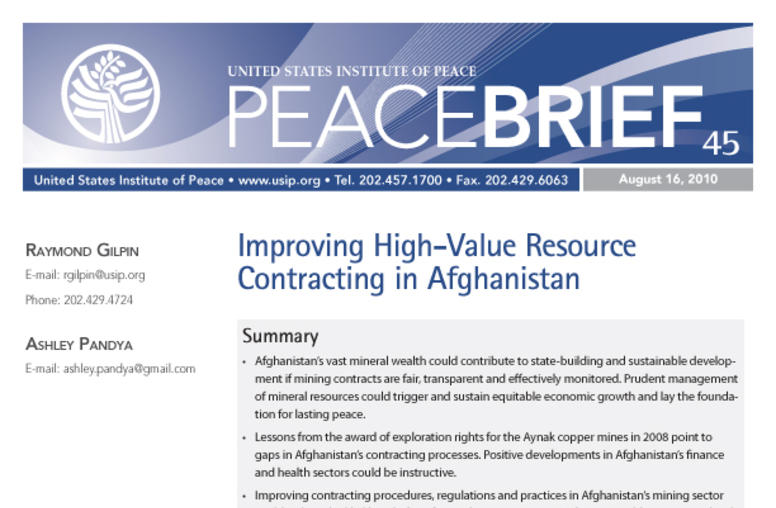
Improving High-Value Resource Contracting in Afghanistan
Afghanistan’s vast mineral wealth could contribute to state-building and sustainable development if mining contracts are fair, transparent and effectively monitored. Prudent management of mineral resources could trigger and sustain equitable economic growth and lay the foundation for lasting peace.
NATO Commander Visits USIP, Hears About Field Work in Libya, Afghanistan
Adm. James Stavridis, NATO’s Supreme Allied Commander Europe, spoke with USIP staff about some of USIP’s programs making a difference in conflict zones
A Multimedia Online Atlas of War Crimes in Bosnia-Herzegovina
Over the years, the USIP Grant Program has supported a number of noteworthy projects aiming to develop large-scale public archives of primary and secondary information about conflicts in various countries. A particularly impressive documentation effort is being carried out by a nongovernmental organization in Bosnia-Herzegovina, the Research and Documentation Center (RDC), whose work has been supported by two USIP grants, one of which commenced in May 2010 and remains ongoing.
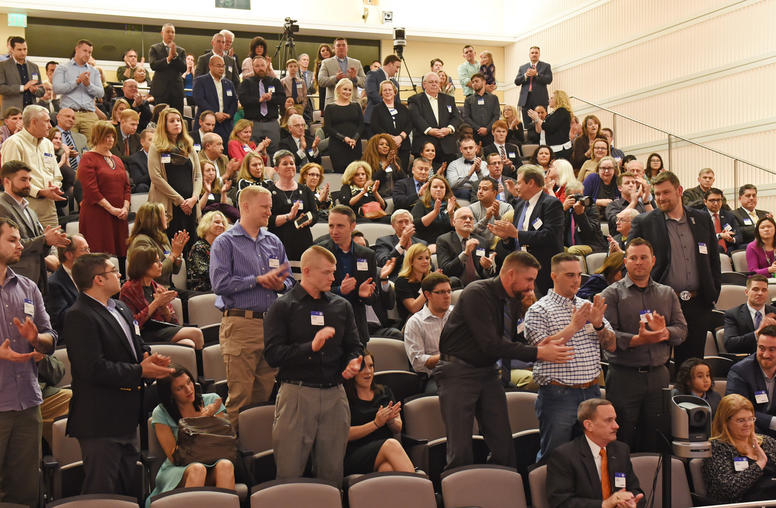
U.S. Afghanistan Veterans Recall the Costs of War
When we estimate the costs of wars, our guesses can render figures too vast and numbing to really grasp. Brown University’s Costs of War project estimates that wars since 2001 involving U.S. forces have cost $4.8 trillion, 370,000 people killed in direct violence and nearly 1.2 million dead when indirect causes are counted. At the U.S. Institute of Peace on Feb. 22, a prominent journalist and U.S. combat veterans focused on a tiny but dramatic subset of costs—the price paid by these former soldiers when they were sent a decade ago to a perilous corner of Afghanistan.
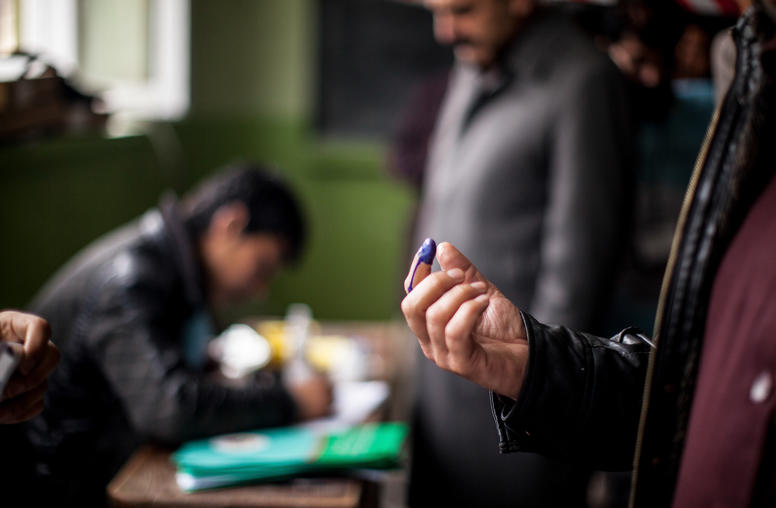
How to Build Out President Trump’s Afghan Plan?
President Trump’s blueprint for the U.S. role in Afghanistan broadly resembles that of prior administrations, correcting some previous errors while appearing likely to repeat others, USIP experts told journalists today.
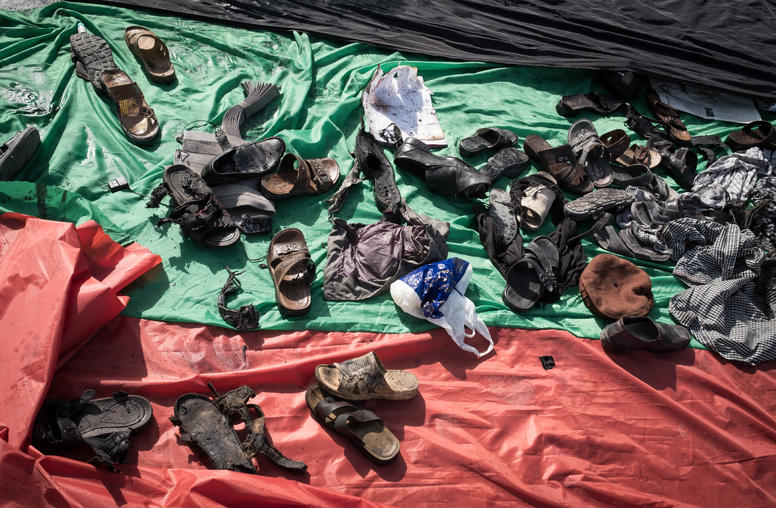
South Asia: Rising Extremism Opens Way for ISIS
Across South Asia, complex strains of extremism are opening the way for the Islamic State and destabilizing governments. From elements in the Afghan Taliban to the ascent of Hindu nationalism in India, extremists are drawing the region deeper into volatile internal and external conflicts, according to experts on religion and extremism speaking recently at the U.S. Institute of Peace. There are no quick ways to reverse the trend, they said. But steps that could slow radicalization include bolstering free speech, attacking terrorists’ financial networks and undermining the myth that a long-ago caliphate ruled over a perfect society.
After Osama bin Laden: The Future of Pakistan and Afghan Reconciliation
USIP experts discuss how the death of al-Qaida leader Osama bin Laden impacts Pakistan, the prospects for Afghan reconciliation and U.S. policy in the region.
Customary Law Plays Critical Role in Countries in Conflict, Experts Say
Existing systems of customary justice should be seen as a continuing and important part of international efforts to support justice reform in countries hit by conflict, a group of specialists said at the January 12 public launch of a book published by the United States Institute of Peace (USIP).